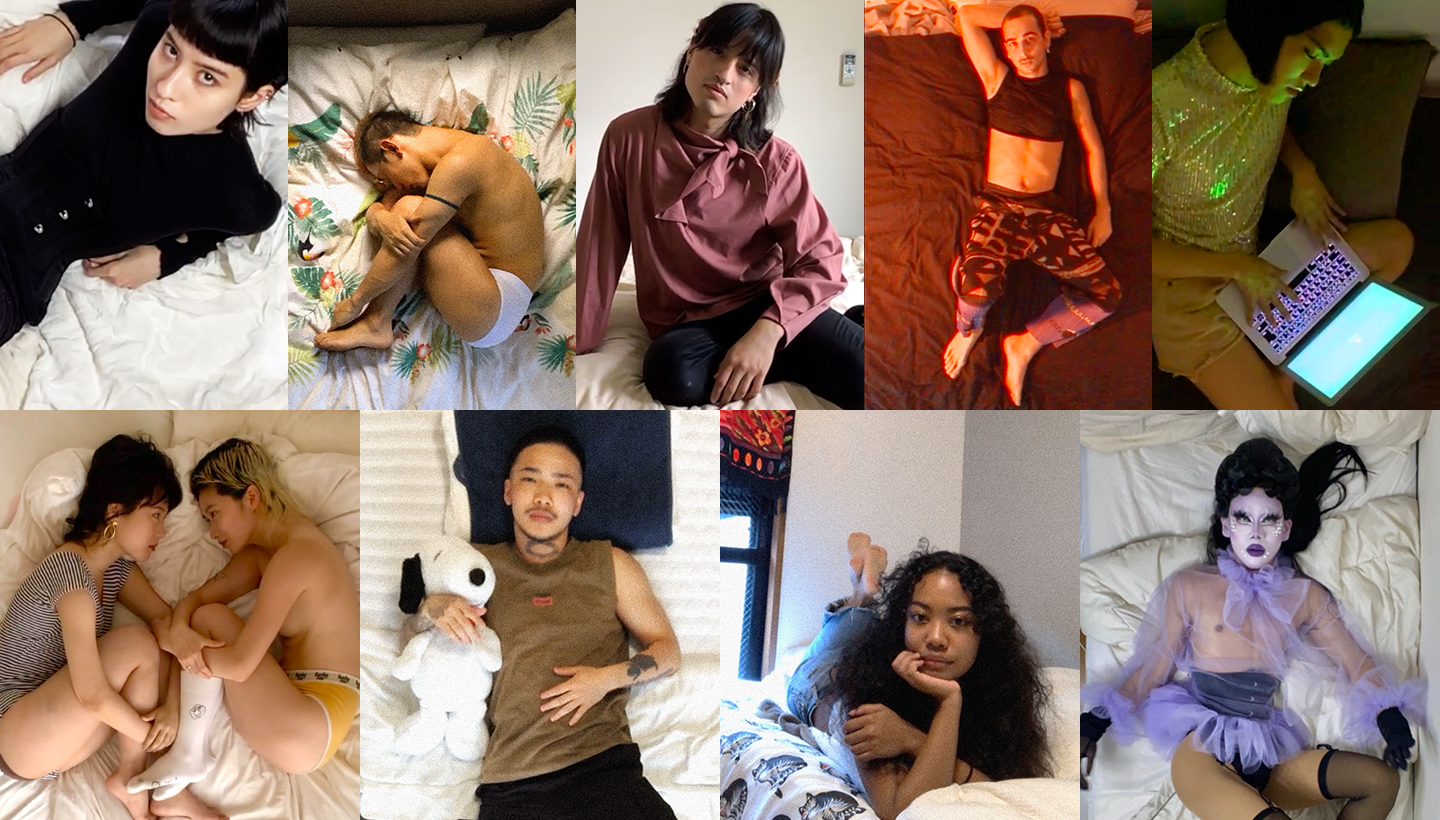As part of Pride Month, i-D Japan interviewed 9 queer people living in Tokyo and asked them about the challenges they face in today’s society.
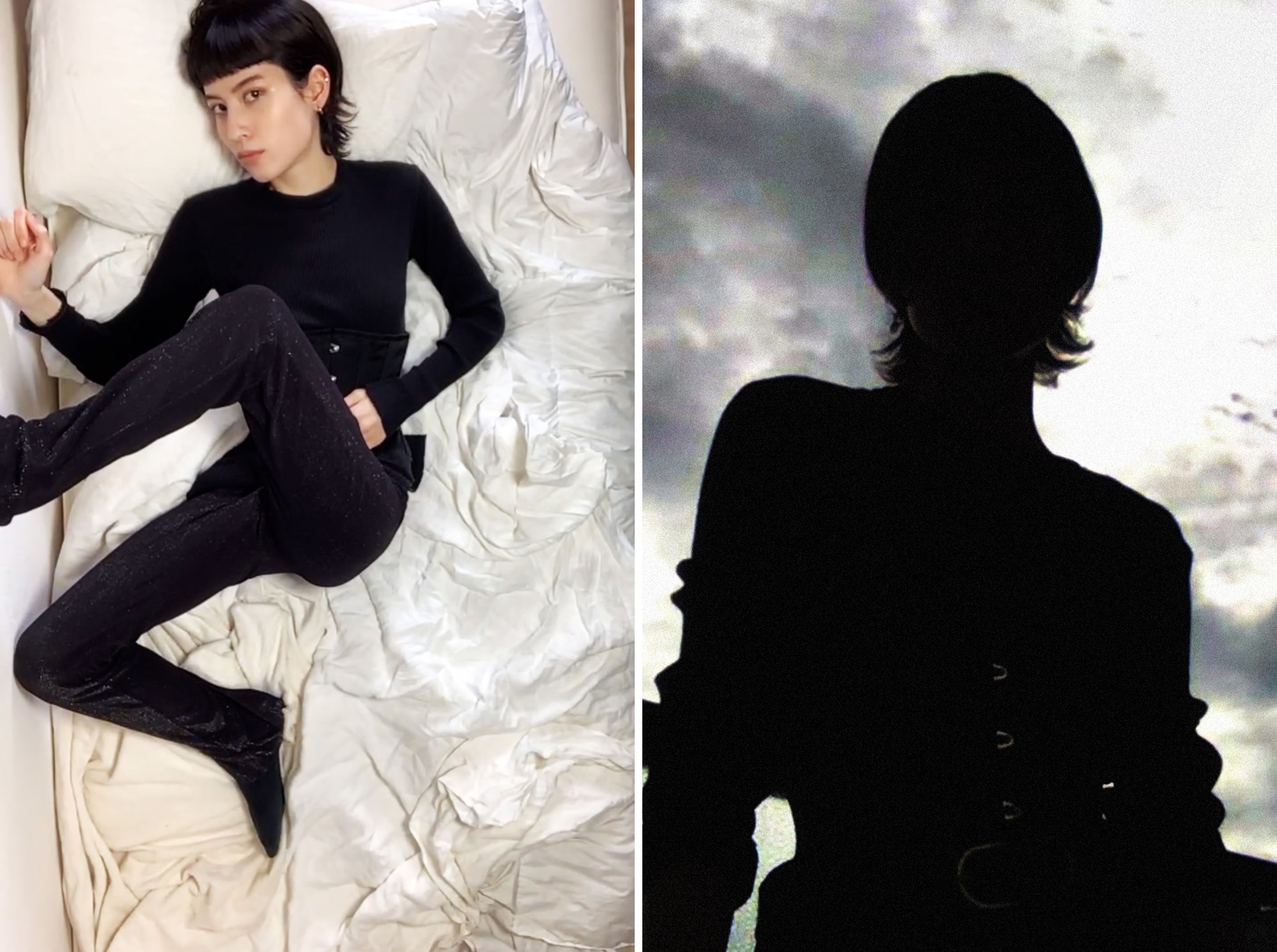
Amity Miyabi, 18
What was it like growing up in Tokyo? I actually didn’t grow up in Tokyo at all, I lived in America for the first 18 years of my life. But after moving to Tokyo last year, I’ve felt so much freedom and confidence in my identity in away that I hadn’t before. I came here with the impression that Tokyo is a mix of all kinds of people from all kinds of backgrounds, and it has been exactly that. For the most part, I feel like I can be myself here, even when there are people who may not be fully accepting or understanding of my identity.
What does equality mean to you? Equality in the present context seems like something easily definable as minorities and marginalised individuals having the same rights and freedoms as the majority, but to me, it is most important for the focus to be on how that point of “being equal” is achieved when the starting point is already drastically unequal. Even within the LGBT community, there are groups that experience more or different hardships than others, particularly transgender people.
If you could pass on a message to the next generation, what would it be Don’t shrink yourself for others. I spent so much of my youth suppressing myself and beating myself up over my identity, and looking back, things like this only result in regret. I want the next generation to be full of people who are able to live their lives confidently as their true selves, and have no regrets about it. For now, it is up to us to create that supportive environment for them.
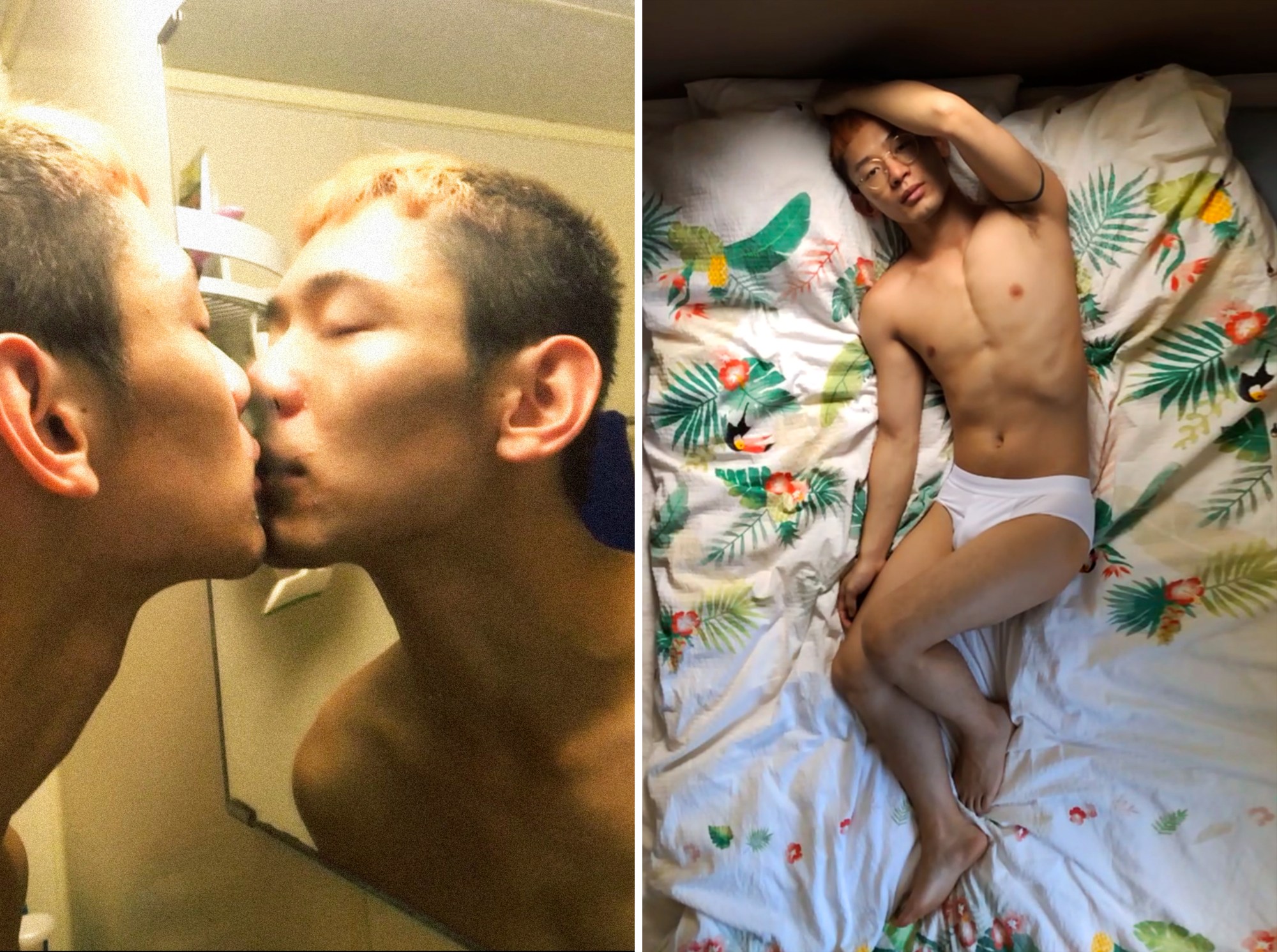
Dalen Wang, 27
What do you do? I’m an exchange student majoring in fashion.
Does your gender affect your fashion style? If it does, how? I’ve actually never thought about it, but I think it partially does. When I lived in China, I didn’t hide the fact that I’m gay, but I used to wear masculine clothes. After I moved to Tokyo, I started wearing feminine clothes and make-up, and realised that it’s what I like.
What is your image of an ideal relationship? My image of an ideal relationship is living like a family, supporting and helping each other. I’m not planning on marrying someone though. I see marriage as a relic of the past.
Do you use any dating apps? I prefer to meet people in real life. If you want to hide your identity, using an app does the trick. But if you want to show yourself as you are and live according to that, I think it’s possible to spontaneously meet someone that matches your personality and needs.
What is your ideal first date? Go to the beach and watch the sunset.
Is there anywhere in Tokyo that you would consider your safe space? The beaches. To me, the ocean is some sort of an “outside world”. Whether you are an exchange student, a gay person, or even just a human being, everyone experiences that feeling of wanting to escape from your problems. In these quiet and beautiful places, without the sound of racism or prejudice, is where I feel most at peace.
Is there any LGBTQ+ movement or artist you are paying attention to now? I’m following purple millennium, a magazine about the LGBTQ+ movement written by some friends of mine, and a collective called Reing.
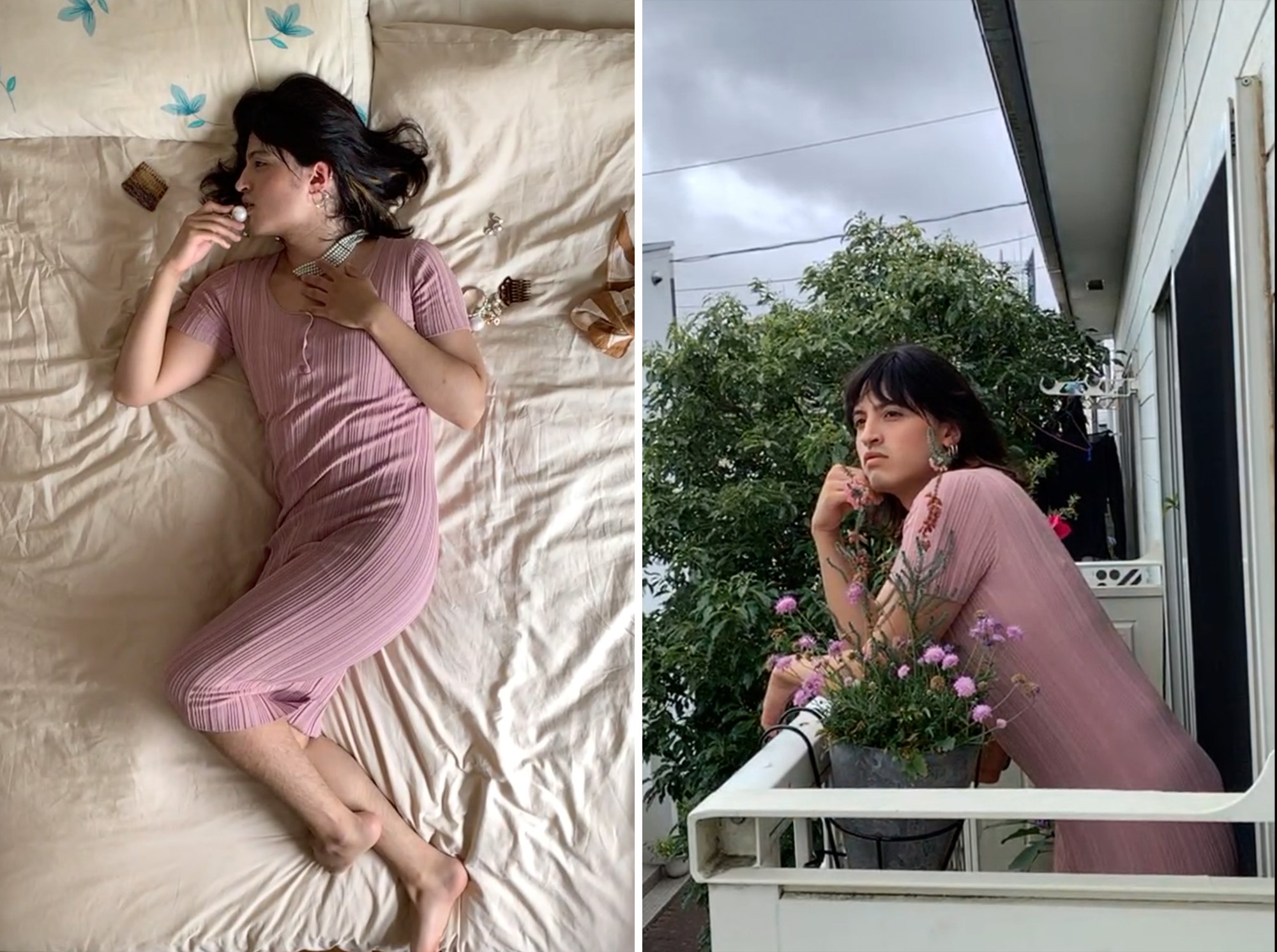
Edo, 25
What do you do? I am a creative diva, working with photography, fashion design, make up, styling, dance and drag performance. I am a Creative Director for REING, a Tokyo-based creative agency looking to challenge Japan’s rigid gender standards and design a new non-binary future through marketing, fashion and art.
Does your gender affect your style? If it does, how? I am gender-plural which means I identify as she, he, they, it, queen, henny, boy, whatever label you want to try putting on something that can’t be labeled anyways. If people want to think of me as a lady with hairy legs, or a man in a dress I don’t mind, as long as I’m having fun and looking fabulous.
Do you use any dating apps? I met my current boyfriend on Grindr and we’ve been together for two years now. Honestly, I would never recommend any dating app to anyone. I downloaded Grindr amidst a pool of self-loathing and insecurity but got lucky and found a great guy. My experience with dating apps has always been that they make something so complex into something very two dimensional.
Do you have a safe space in Tokyo? Could you tell us the reason? New Sazae in Shinjuku 2-chome. It is the only place on earth when I feel spirituality. Dancing in the disco lights I forget I exist and I feel light, eternal, pure bliss.
What was it like growing up as a member of the LGBTQ+ community in Tokyo? Tokyo and its community of LGBTQ+ individuals has been the place where I was able to mature as a queer individual but I wouldn’t say I ever formed part of the community. Almost all the major communities that form in most cities end up being restrictive and reject individuals who don’t fit their standard. My community ended up being people who were queer but far removed from any sort of “group”.
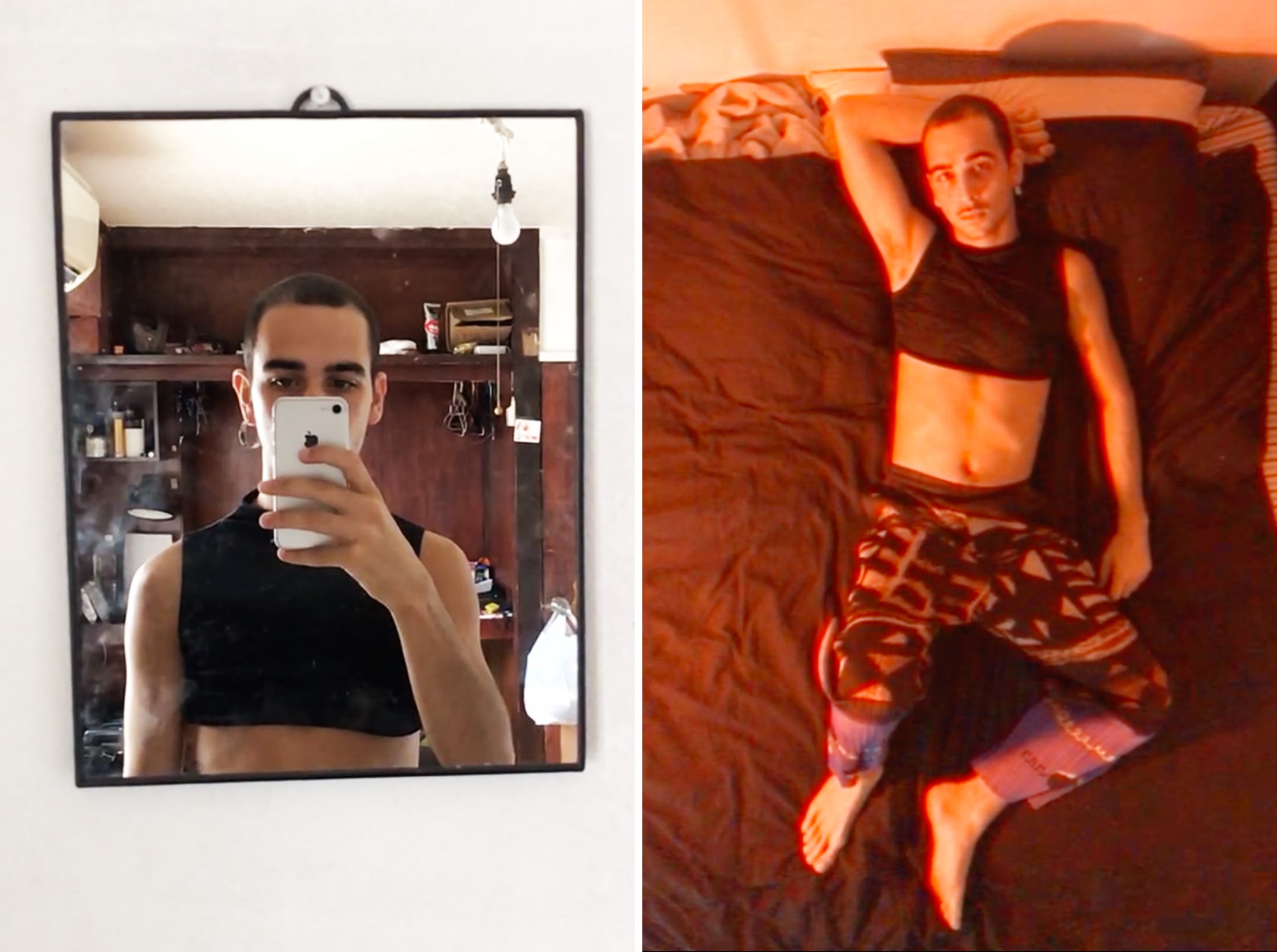
Jacky, 25
What do you do? I am a photographer and I study Japanese language and culture at Rikkyo University in Tokyo.
What does partnership mean to you? At work or in my love life, I guess an ideal partnership would mean to create something powerful with someone, having the same goals and make these goals come true. I’m a big romantic and it’s also the case when I collaborate when I am taking photos. I need mutual love.
Do you use any dating apps? I use Grindr, I guess because it is the most used, wherever you are in this world. But it’s very different in Tokyo to the way people use it in France, where I come from. A dating app is a strong tool to analyse the community you belong to. It helped me understand the Japanese approach and expectations, what people can and can’t say. I also learnt a lot about Japanese sex slang, which was very useful.
Do you have any safe spaces in Tokyo? Without any doubt I will say New Sazae, this disco bar in Shinjuku. This place is magic. When you enter, you just feel home. You can be young, old, gay, lesbian, bi, trans, in drag, straight, Japanese, foreign, none of this matters there.Everybody meets, talks and dances together. My first time there about 2 years ago was a revelation. You feel safe there, you can be whoever you want.
What was it like being a member of the LGBTQ+ community in Tokyo? When I travel, LGBTQ+ people are the ones making me feel home. Tokyo is no exception. When I arrived, I started to hang out in 2-chome, the gay district in Tokyo. I think that’s where I met most of the craziest and the most adorable people I know. The LGBTQ+ community in Tokyo is a beautiful mix of foreigners and Japanese people, it was easy to feel part of the community here. Compared to Paris, Tokyo is easier regarding to how you present yourself to the outside world. People in Tokyo won’t make you feel bad about the way you look.
Everybody minds their own business, they don’t try to interfere. When I’m dressed to go out in Tokyo, I feel totally free as a gay man wearing the clothes or the make up I love.
Is there any LGBTQ+ movement or artist you are paying attention to now Right now I am supporting this organization called G.L.I.T.S. You’ve all heard about the recent events with the numerous transsexual people, mostly black trans women, who are still being killed today just because of their gender identity. So for the last few months, G.L.I.T.S have been providing temporary housing to Black trans people in NYC. They raise funds, buy buildings, and welcome the trans people who need help.
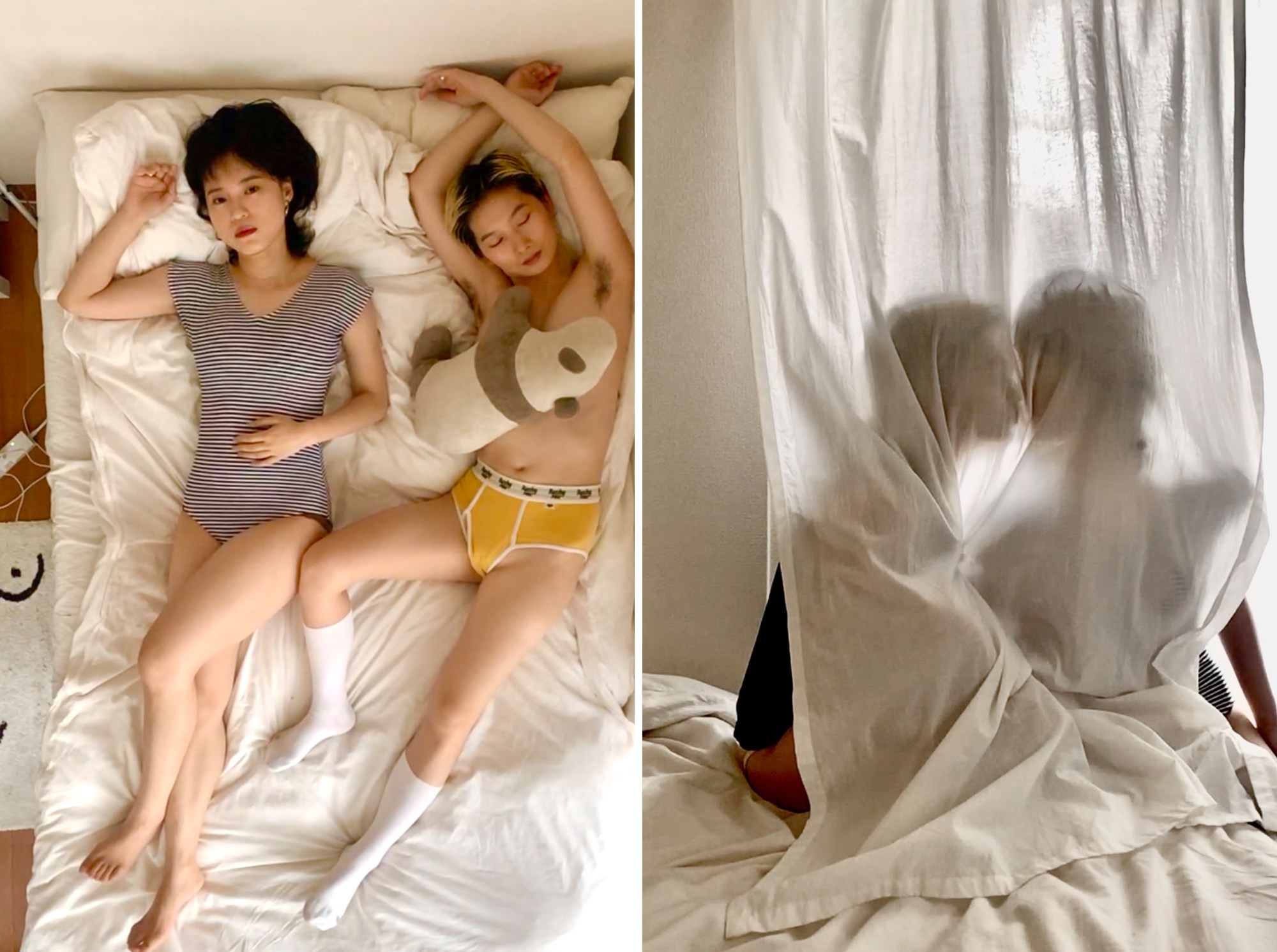
Sui and Kien
Does your gender affect your fashion style? SUI: I always wear whatever I want. Fashion is freedom, in my opinion.
What is your image of an ideal relationship? SUI: I’m very communist about love and relationships. The couple’s combined effort to build your future is what makes an ideal relationship.
Do you use any dating apps? SUI: When I lived in China, I was using RELA, which is for lesbians only. I met my first girlfriend through an app. It’s a new way of meeting people, born from the new generation.
What is your ideal first date? SUI: Anything goes if I can be myself.
What was it like as a member of the LGBTQ+ community in Tokyo? SUI: After coming to Japan I was able to face my complex. I think I became more honest. I don’t know if it’s thanks to the environment I am in or the friends I made here, but I think I grew up because of the community I am part of.
Kien
Does your gender affect your fashion style? If it does, how? KIEN: It doesn’t, I’m a walking lesbian.
What does freedom mean to you? KIEN: To me, freedom means not being tied down by society’s standards. If you allow your thoughts to be free, you can do whatever you want.
If you could pass on a message to the next generation, what would it be? KIEN: I want them to be happy to be themselves. Isn’t being perfect just boring?
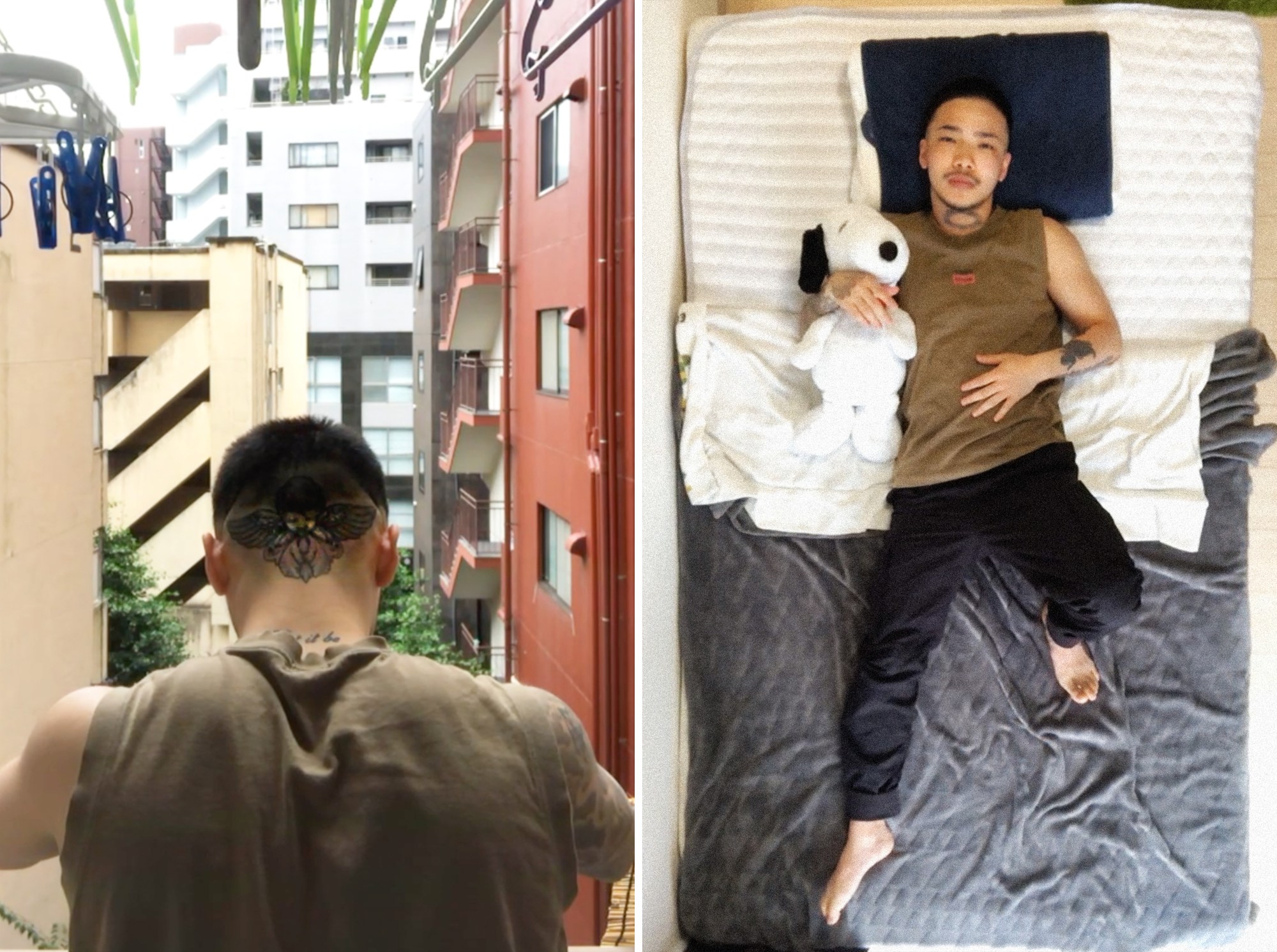
Kila
What do you do? Just doing what I like and having fun.
What is your image of an ideal relationship? One way to achieve happiness.
Do you use any dating apps? I’m more interested in meeting people directly.
Is there anywhere in Tokyo that you would consider your safe space? There isn’t a specific place in which I feel especially at ease being myself. I always want to be honest with myself.
What do you like best about yourself? I’m not ashamed of the body I was born with. I am proud of my female genitalia.
What does freedom mean to you? Freedom is being able to decide who you are and express yourself however you want.
What does equality mean to you? Living in an environment where there’s always something to learn.
If you could pass on a message to the next generation, what would it be?Be honest to yourself.
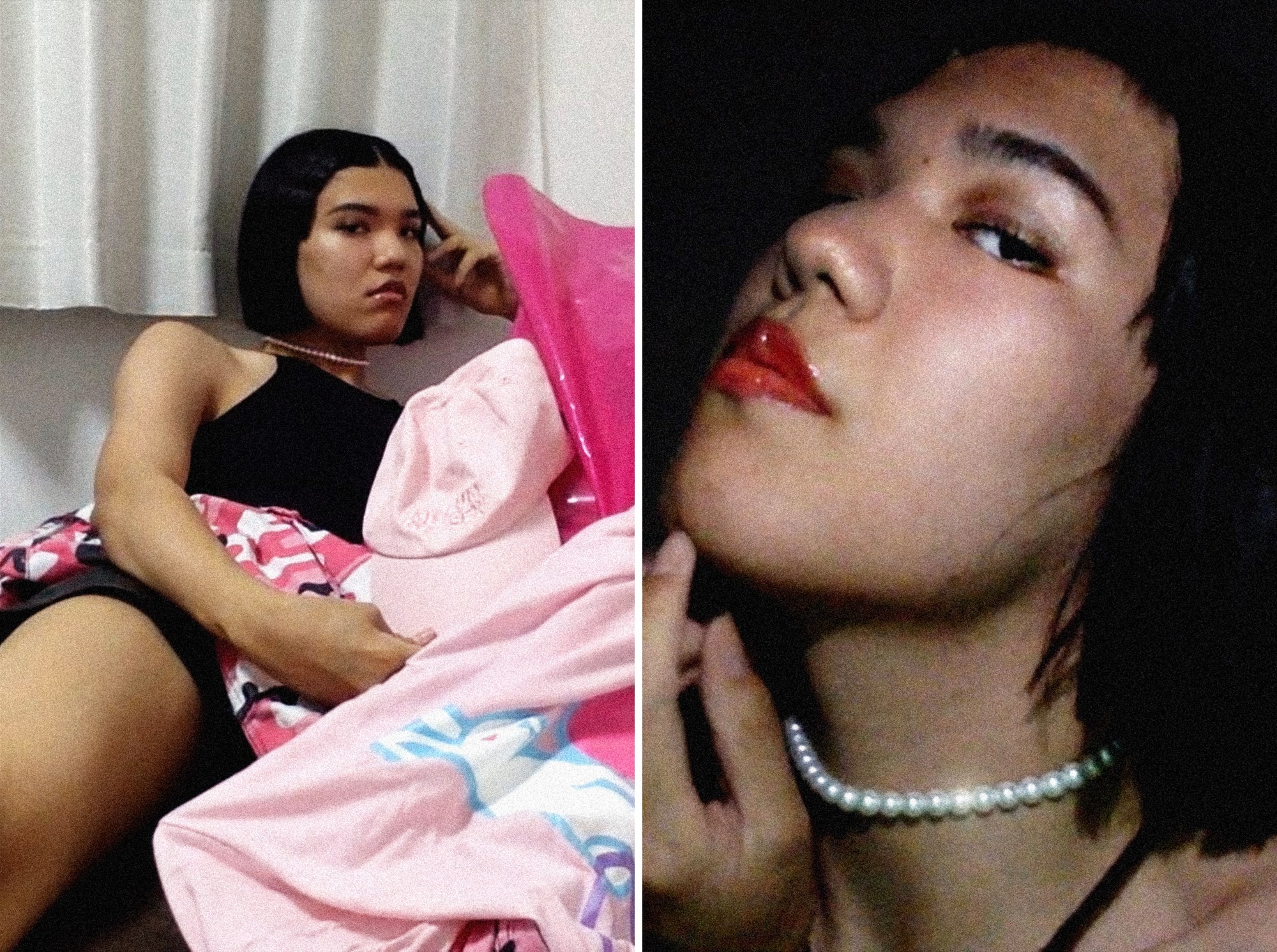
Keishi Yanagisawa, 23
Does your gender affect your fashion style? If it does, how? It does! I was able to escape the stereotypical concepts of how a man should look, and now I always try to maintain my skin and body. I feel the need to put my efforts into staying beautiful.
Do you use any dating apps? I’m using Bumble. I’m not really searching for love, but since I live in Japan I use them to find English native speakers to teach me the language!
What is your favourite film or TV series? Boys Don’t Cry. It’s based on a real story, the protagonist, a transman falls in love with a girl, when the girl’s older brother finds they kill him. When I found out that in reality people aren’t accepted for their gender, I wanted to build a society where diversity is accepted for everyone.
Is there anywhere in Tokyo that you would consider your safe space? Probably Harajuku. I absolutely love the kind of places where you can be free about your own fashion style.
Is there any LGBTQ+ movement or artist you are paying attention to now?Richie Shazam. Her posing and fashion sense are very distinct and I think she’ll become more and more viral! Her energy inspires me and it’s one of the people I would love to meet in New York.
If you could pass on a message to the next generation, what would it be? I really want everyone to live freely and have fun. In my case though, I was bullied and discriminated against for my gender because of that. Even if it’s not about gender, you absolutely can’t give in to anyone who’s bullying you.
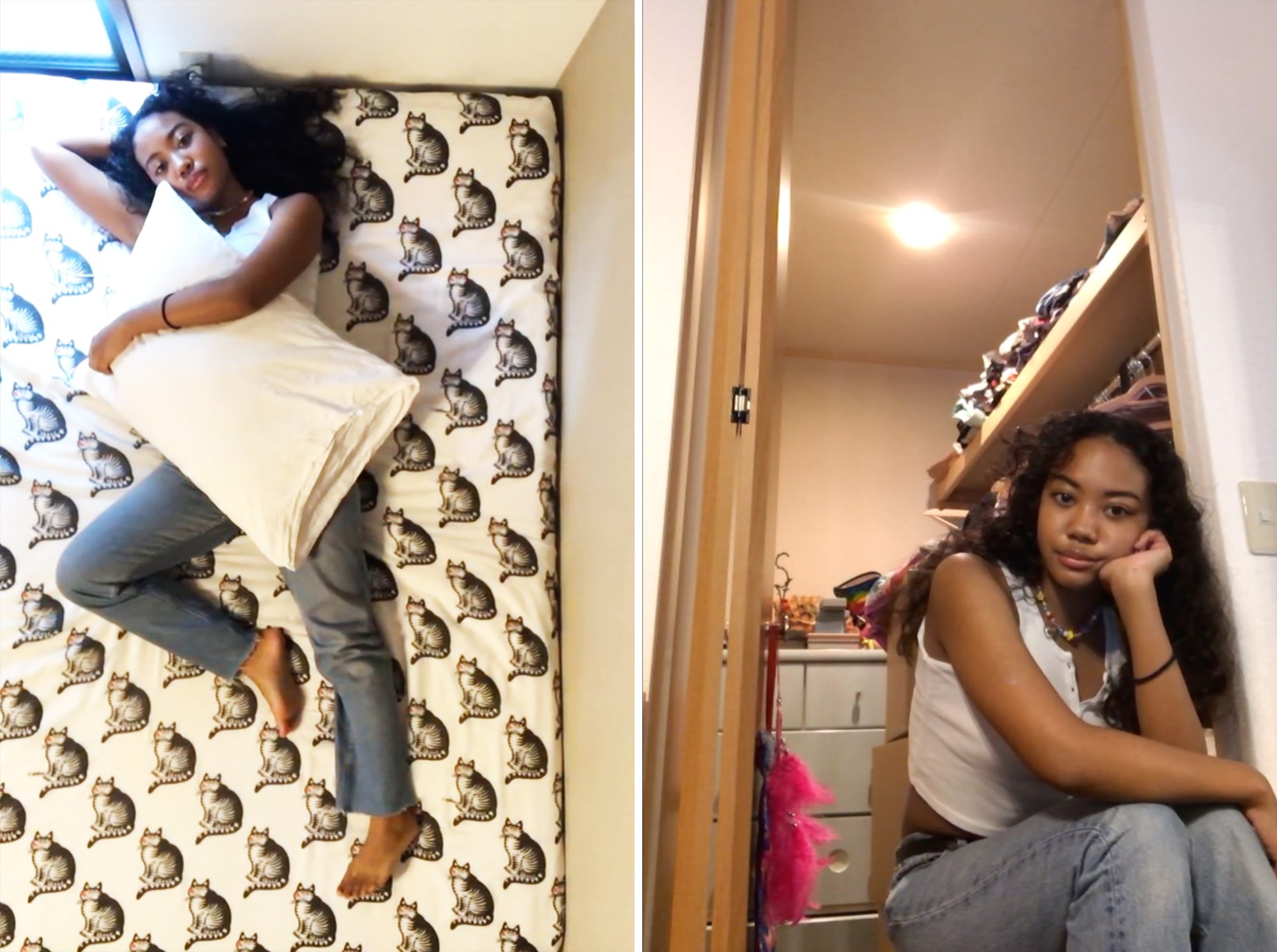
Nene
What do you do? PR and modelling.
What is your image of an ideal relationship? Someone who knows you deeply, and lets you grow up. My ideal relationship is based on mutual respect and being comfortable with each other, being yourself.
What is your ideal first date? I’m not really good at talking about this, so probably just a walk or something in the park.
Is there anywhere in Tokyo that you would consider your safe space? I always feel safe hanging out with my friends. Everyone has a different background so people might have different opinions, so we listen and accept each other, and if we don’t agree on something we talk about it together.
What was it like growing up as a member of the LGBTQ+ community in Tokyo? I’ve been taught many things by the community: creativity, self-expression. It’s a big inspiration for me. But I feel like there is still a lot of prejudice and many problems in the community.
If you could pass on a message to the next generation, what would it be Believe in yourself and do what you want, however you want!
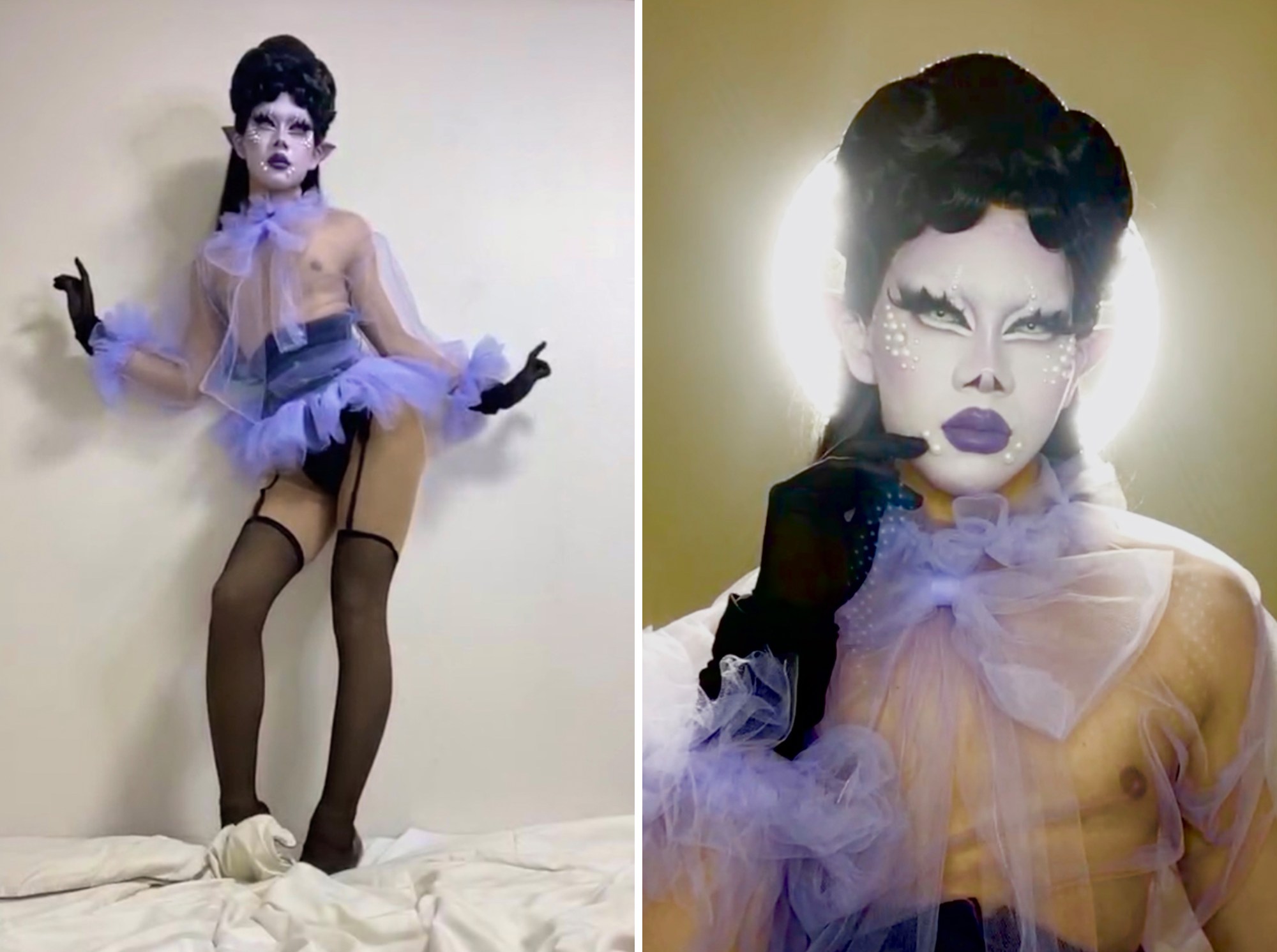
Okini
What do you do? I’m a drag performer and artist.
Does your gender affect your fashion style? If it does, how? My style is pretty much “fuck genders”.
What is your image of an ideal relationship? I’m a strong independent bitch, so I’ve never had a proper partner, so I honestly don’t know what a relationship is..
What is your favourite film or TV series? Call me gay and make fun of me, I don’t care. I love Ryan Murphy’s works.
Is there anywhere in Tokyo that you would consider your safe space?There’s an event called Beauty Blenda by Haus of Gaishoku which is like a home to me, a safe space. It’s my starting point, where I performed as a drag performer for the first time. It’s full of diverse performers and artists, which is very stimulating, I now get to meet a lot of people and experience many different things there.
What do you like best about yourself? When I’m performing. When I’m surrounded by everyone’s smiles and clapping, I feel that’s what I’m living for.
What does equality mean to you? Sometimes I doubt that an equal world may even come to be. On the other hand, inequality actually exists, and not everyone gets equal chances and rights in life. One of the most important examples in regards to this is the Black Lives Matter movement, especially in America. I think that the first step towards “equality” would be for everyone to be interested in such problems, study their history and do something about it.
If you could pass on a message to the next generation, what would it be Learn about yourself, accept yourself, love.
Credits
Photography Idan Barazani Casting and creative director Taka Arakawa
